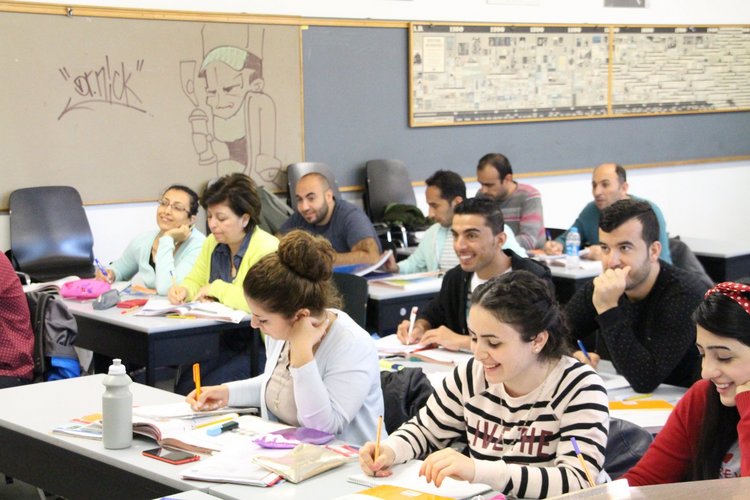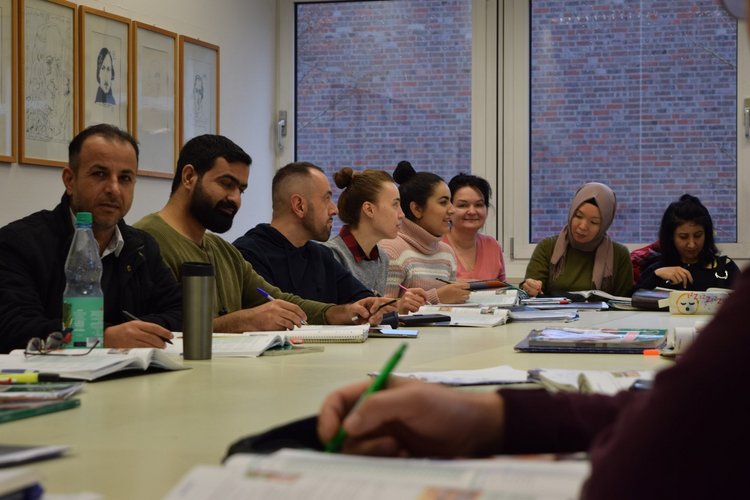

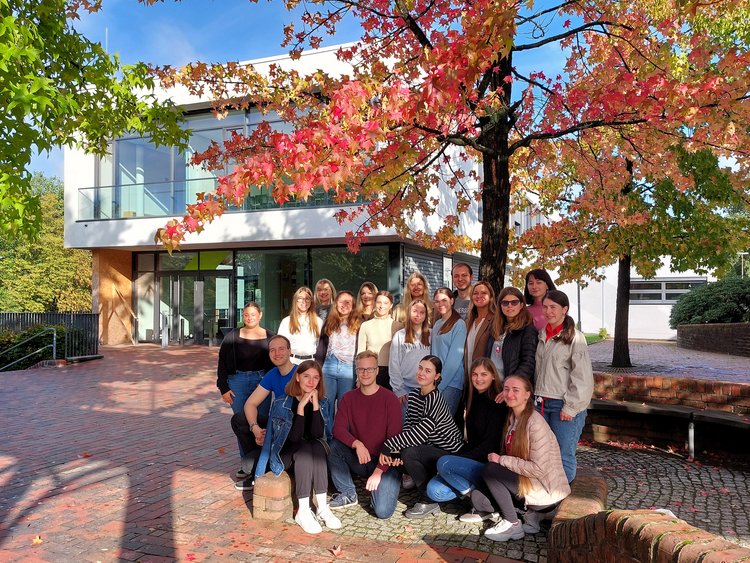
Study
The focus of the degree programmes (Bachelor & Master) at the University of Vechta is on Management (e.g. Management of Social Services), Social Services (Social Work, Educational Sciences or Gerontology) and the teacher training programme.
We offer individual advice on your studies.

"Back to School" and adaptation course for teachers
The adaptation course enables foreign teachers to acquire competencies that are lacking in comparison to a German teaching degree and to subsequently work as a fully-fledged teacher at state schools.
The "Back to School" program prepares students for the adaptation course and provides individual support for participants in the university part of the adaptation course.
Refugees participating in the programme of the “Kiron Open Higher Education GmbH”, who are interested in studying at the University of Vechta, can and have to apply like all prospective students.
Based on the courses offered by Kiron, the following related degree programmes offered at the University of Vechta might be suitable:
- Social Work (Bachelor or Master)
- Social Service Management (Bachelor or Master)
- Business and Ethics: Social Business (in the Bachelor Combined Studies)
- Social Sciences (in the Bachelor Combined Studies)
- Political Science (in the Bachelor Combined Studies)
The complete range of programmes can be found here.
You can apply for recognition of coursework or credits achieved in the Kiron programme.
For modules offered by universities, you have to submit a request for transfer of credits. Information on this request can be found here.
If you have completed modules not offered by a university, you can request recognition of skills acquired outside of higher education for these modules. Information on this request and the contact details of Maria Goldberg can be found here.
Dr. Katrin Schumacher will be happy to answer your questions.
The Network for Traumatised Refugees in Lower Saxony offers free psychological counselling (also for children and teens) in Hanover, Oldenburg and Osnabrück, among other places. Counselling sessions can be held in German, English or (with the support of interpreters) in many other languages.
The Studentenwerk also offers psychosocial counselling, which is open to all students of the University of Vechta.
The International Office regularly informs prospective international students and teachers with and without a refugee background about new offers at the University of Vechta as well as application deadlines.
In addition to prospective students and teachers with and without a refugee background, the free newsletter is also aimed at all interested counselling centres and volunteers.
If you would like to be added to the mailing list to receive the newsletter, please send a short email to Dr Katrin Schumacher (katrin.schumacher@uni-vechta.de).
The International Office raises third-party funds in order to be able to offer these programmes. Information on these programmes can be found here.
Students at Risk - Hilde Domin-programme (DAAD)
The "Hilde Domin" scholarship programme of the German Academic Exchange Service (DAAD) aims to support vulnerable students and doctoral candidates who are formally or de facto denied the right to education in their country of origin due to their ethnic, sexual, gender or religious identity or their political or civic engagement, to take up or continue their studies in Germany.
Philipp Schwartz Initiative
The Humboldt Foundation's Philipp Schwartz Initiative gives universities and research institutions in Germany the opportunity to host vulnerable researchers as part of a fellowship.
Further scholarship programmes & BAföG
The DAAD lists numerous other scholarship programmes in its database. You are also welcome to apply for the "Deutschlandstipendium" scholarship!
Students with a residence permit as refugees can also apply for BAföG (funding in accordance with the Federal Training Assistance Act). If you have any questions, please contact us!
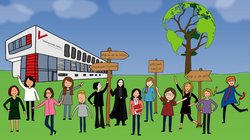
Please feel free to contact us!
If you have any questions about studying at the University of Vechta, please feel free to contact the team of the International Office!
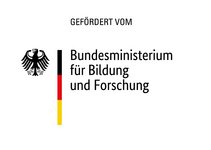
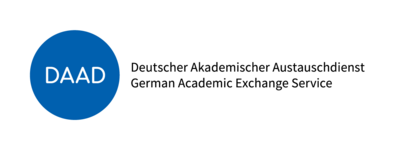
supported by the DAAD with funds from the Federal Ministry of Education and Research (BMBF)

Part of the offer is implemented by the AMIF project "Jump the Hurdle! Chancengleichheit auf dem Weg in pädagogisch-soziale Handlungsfelder".

